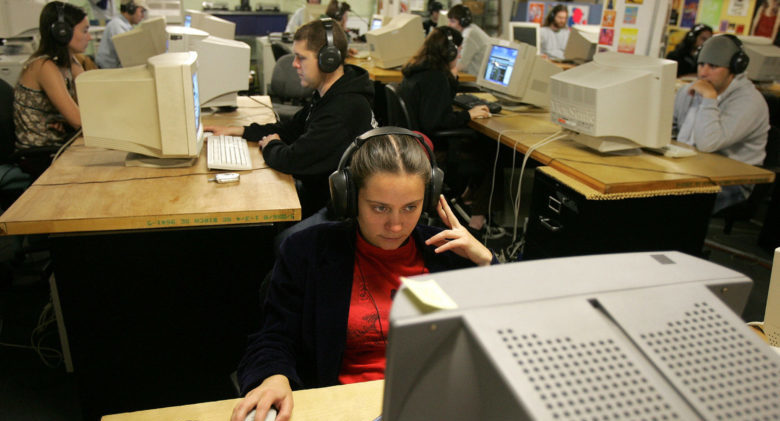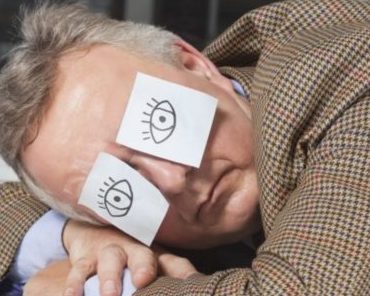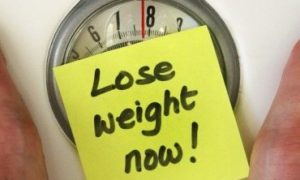[nextpage]
If you have trouble making it through the day without wanting to go to sleep, you are not alone. However, your problem may be solved. Check out this list of 13 ways to get more energy and recharge your brain during the afternoon doldrums, and find one or two that works for you.
[/nextpage]
[nextpage]
1. Sleep At Night

This is the most important (and time consuming) change you can make in your daily, ahem, nightly, routine that will sharpen your sword (your brain) and keep you energized longer throughout the day. It begins with getting to bed and turning out the lights at a similar time each night. When you sleep, your body and brain undergo important processes, like repair and recovery. There are four levels to a sleep cycle, and level 4, REM (Rapid Eye Movement) is the final and the most important for cognitive function: learning, concentrating and higher-level thinking. It takes 70-90 minutes after falling asleep to reach REM, and then that part of the sleep cycle lasts 90-110 minutes. Ideally, we’ll experience four sleep cycles a night, lasting about 90 minutes. Conservatively, that’s 6 hours once you fall asleep. Experts recommend adults get 7-9 hours a night. (Poll: How many hours a night do you get? Type your answer below.)
[/nextpage]
[nextpage]
2. Jump Around. Jump Around. Jump Up. Jump Up, And Get Down.

Okay, you don’t have to get down with House Of Pain, but simply moving your body can stimulate your brain. Physical movement increases the production of serotonin, a neurotransmitter associated with mental well-being. Movement also increases BDNF which helps nerve cells transmit information better. That’s not all. A 1999 Salk study led to the discovery that the adult human brain is capable of producing new brain cells. It’s a process called neurogenesis, and physical exercise stimulates this. (See next slide.) If you work from home, besides the potential paparazzi, what’s stopping you from taking a ten minute disco break? If you are in a cubicle, jumping jacks might be out of the question but walking is not. Walking, like other forms of movement, increases your heart rate and therefore increases blood flow and oxygen to your muscles…and to your brain—and it boosts memory functions and the ability for abstract reasoning.
[/nextpage]
[nextpage]
3. Exercise

This could be the most effective way to improve your memory and your ability to concentrate. In fact, exercise is so good for the brain people who work out regularly are 50% less likely to develop dementia. The reason: neurogenesis. Exercising stimulates the production of new brain cells, which, until recently, scientists and doctors believed impossible. But creating new cells is possible, and it happens when you exercise and really give yourself a good workout. You develop more brain cells in the hippocampus, the area of the brain that houses new memories. Studies show that immediately following aerobic exercise, problem solving, memory, and attention improve. And Dr. Scott McGinnis, a neurologist at Brigham and Women’s Hospital and an instructor in neurology at Harvard Medical School said, “Even more exciting is the finding that engaging in a program of regular exercise of moderate intensity over six months or a year is associated with an increase in the volume of selected brain regions.” Exercising is smart.
[/nextpage]
[nextpage]
4. Play A Sport

If morning workouts aren’t your thing, why not take up a sport? Besides helping increase your overall happiness, as studies show, playing a sport will improve your concentration, sharpen your mental acuity, and improve your ability to learn as well as your ability to make good judgments. This will carry on as you age which is an extra benefit. Playing a sport three to five times a week may tire you out initially, but it will ultimately invigorate your body and your mind, probably sooner rather than later. It’s recommended to play a competitive sport with others relying on your presence. This will make it more difficult to take a night off! Here are some suggestions: bull fighting (just kidding), tennis, soccer (football), racquetball, volleyball, basketball, modern dance or hip hop, golf, martial arts, boxing, and kickboxing. Check the classifieds, your local YMCA or JCC for classes or team sign-ups, or just go out to the courts or a field at night and see if there are games being played.
[/nextpage]
[nextpage]
5. Avoid Sugar

This one is a toughie, admittedly. But refined sugars feed brain fog, an inflammatory condition in the brain that causes brain cells to work slower. In turn, thinking and reflexes work slower, and your endurance to concentrate is diminished. If you skip meals or binge on sugar (candy bars, sugary drinks, or pour packets of sugar down your throat…that sort of thing) it can cause a blood sugar spike. This can lead to the release of pro-inflammatory stress hormones and interfere with hormone signaling, and this can result in problems that are typically tied to brain fog. Cutting back on refined sugars and opting for fruits and vegetables will shift the unhealthy sugar balance in your blood, and start to fan away the effects of brain fog. And although a sugar rush can give you a quick spurt of energy to power through a project, it inevitably is followed by a crash. Shifting away from the white stuff will increase your overall daily energy level.
[/nextpage]
[nextpage]
6. Eat Breakfast

Raise your hand if you would like to skip lunch and avoid all snacks from breakfast to dinner. Only one hand went up. If you skip breakfast, you’re essentially fasting from last night’s dinner until that day’s lunch. Breakfast is the most important meal of the day for several reasons, one of which is you are breaking your (sleeping) fast. This meal will help you concentrate better and improve your ability to remember. It will not, repeat not, cause you to gain weight. In fact, skipping breakfast has been proven to add pounds for various reasons. If you want a low-cal but high brain power breakfast, a handful of almonds and blueberries will do wonders for you. If you’d like a more substantial start, include grains, protein and maybe fruit. Eggs, whole wheat toast and a banana works. (Three eggs in the morning have been proven to satiate well into the day.) A bowl of healthy cereal and milk topped with fruit is a good first meal also.
[/nextpage]
[nextpage]
7. Drink Water

Coffee or water? Coffee or water? Have you ever even asked the question when your eyelids were drooping? The caffeine in the coffee will give your energy a spike, but it will ultimately lead to a crash. Water, on the other hand, will give your brain and your body a boost that should carry you for hours. Sleepiness is one sign of dehydration, and chances are you are one of 75% of Americans who are dehydrated, even a little. Studies show that even mild dehydration leads to fatigue. It also causes foggy memory, dampen our cognitive functioning and weaken our ability to concentrate. This is true for all ages, even children, and especially young adults who might feel invincible. Hint. Hint. Keep a bottle of water by your side or take a walk to the water cooler every now and again. The movement will help stimulate your brain, too.
[/nextpage]
[nextpage]
8. Get Some Sun

Our bodies are attuned to the sun and the light it gives. For instance, sunset reds and oranges tell our brain it’s time to wind down. We, of course, respond, by turning on lights, TVs and reading our back-lit devices. Silly sun, we know better! During the day, if you start to feel drowsy or can’t get your mind to focus, spending a little time in the sun might correct your desire to doze. The daytime light signals your brain to be sharp and alert. Plus, the sun is the best source for us to get vitamin D. A study of almost 17,000 American adults 45 years or older showed low levels of exposure to sunlight experienced 2½ times increase in risk of impaired cognitive function. It’s believed that vitamin D receptors in the brain enhance brain function when vitamin D can bond with them. (If the vitamin is present, that is.) It was also determined that higher vitamin D levels are associated with improved cognitive function. That’s a lot of technical talk for take a 15-minute walk outside if you’re drowsy then get back to work with renewed energy.
[/nextpage]
[nextpage]
9. Listen To This Music

This hack seems to be individual- or personality-based, yet it could be the easiest item on our list of ways to kick start your brain in the middle of the day (or morning or whenever you need your brain to be effective). Listen to music! But there’s a catch. Hang on for a moment. Music affects the entire brain, stimulating all sections, so said a PET scan in a study that showed music lit up the whole brain. When you listen to music, your brain releases dopamine, the neurotransmitter associated with “feeling-good.” But this feel-good feeling doesn’t always lead to improved concentration and better cognitive output. A study showed that students who listened to their preferred genre while performing a cognitive task did poorer than those who listened to classical music. Of course, the group of students that did not listen to any music did best of all. Bottom line: give Mozart or Bach a try and see if you are in concert.
[/nextpage]
[nextpage]
10. Massage Your Brain

If you have a boss who’s always looking over your shoulder, this one is not for you. Unless your boss understands that sometimes the brain needs a break…to sometimes break forward and accomplish more. If you’re able, take a short break. Visit ted.com to learn something interesting in a brain-massaging type way or youtube.com to watch an exciting scene from your favorite movie. It’ll poke you in the brain and get your adrenalin pumping. Just be careful about watching too many videos or visiting these sites too frequently. No boss would appreciate that. You can also play brain games online. These games challenge different parts of your thinking abilities and cause you to “wake up” in fun and engaging ways. There’s lumosity.com, fitbrains.com and mindgames.com among others.
[/nextpage]
[nextpage]
11. Power Nap

If you are able to take a short nap—a power nap—this could really help you get through the day mentally clear and refreshed. Closing your eyes for a short while and actually falling asleep can reinvigorate, refocus and recharge your thinking power. It’s proven that a ten to 20-minute nap (a.k.a. the stage 2 nap) improves alertness and motor learning skills. Naps longer than 20 minutes (lucky you if you can pull that off) lead to improved memory and enhanced creativity, according to research. And napping up to an hour can help decision-making skills and recall. Since the turn of the century, Harvard researchers have conducted dozens of experiments on sleep, and found that naps improve learning, memory and creative thinking. Of course, for some people, napping just doesn’t work. Dozing off for 20 or 30 or even 60 minutes mid-day can leave them groggy when they wake up and resume their day. For those folks, they should try what’s on the next slide.
[/nextpage]
[nextpage]
12. Take Probiotics

This entry is the most counter-intuitive, because it doesn’t focus on the brain in your head. It focuses on your second brain: the one in your gut. Let’s get technical for a second. The 100 million or so neurons (thought to only be in the brain) that line digestive track is known as the enteric nervous system. That’s more neurons than either the spinal cord or the peripheral nervous system contain. Scientists are studying the relationship between gut flora, the bacteria in the intestine, and brain health. Considering those in the medical and scientific community consider our digestive track our “second brain,” it makes sense that gut health would be related to brain functioning. One way to improve the health of your guts is to consume probiotics. You can achieve this by eating fermented foods like sauerkraut and eggplant. You can also take a probiotic supplement. Consuming probiotics has shown to improve health in various areas, including the brain.
[/nextpage]
[nextpage]
13. Take Nootropics

Nootropics have been around since the 1960s. They are supplements that are specifically designed to boost cognitive function. Nootropics are often plant-based and are also known as brain boosters and cognitive enhancers, and their intention is to foster long-term brain health improvements. This includes better memory, sharper thinking, and improved focus. Taking one of many forms of nootropics can also help you to be more mentally awake and protect your brain from decay due to disease. If you decide to try a nootropic to stay sharper longer through the day, don’t expect immediate results. If you’re looking to master a language overnight, look elsewhere. If your goal is to be able to respond to queries at work without having to tap your brain to get it started, nootropics can probably get you there. You need to find the right combinations, and that might require research and trials. The good news is, it could be well worth the effort in the end.
[Featured Image Credit: www.inc.com]
[/nextpage]




